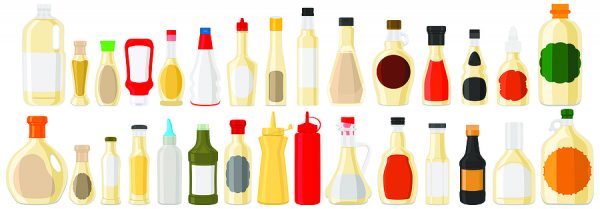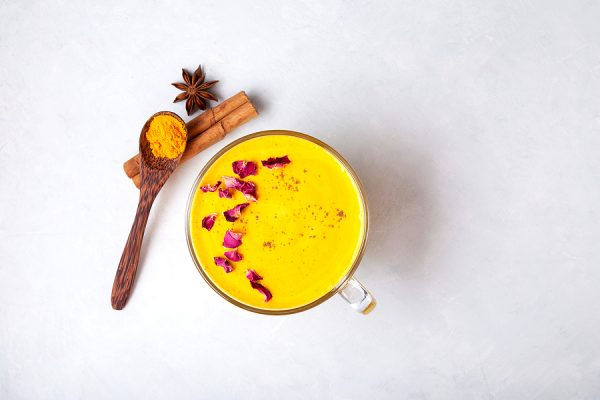We all have routines to clean and unclutter our homes. We sort out our closets and drop unused clothing at donation centers. Old storage containers and utensils in our kitchen cupboards and drawers are discarded. Tired rugs, sheets and curtains are replaced. Unwanted foods in the refrigerator are placed in the trash bin on garbage day.
But when is the last time you looked at the packaged foods in your pantry and kitchen cabinets?
People tend to keep all sorts of food tucked away in their kitchen storage systems. Even if it’s foods they seldom, if ever, use. After all, nobody likes to waste good food!
Down here in South Florida, people stock up on a lot of unhealthy foods during hurricane season. They rob the grocery shelves of Spam, Vienna sausages, SpaghettiOs and Dinty Moore Beef Stew. But unless all food sources are cut off for the next month or two, will they ever even consider eating these purchases?
Some might. But a lot of others won’t. These foods will just sit in pantries and cabinets, day after day and year after year. And their “best buy” date will certainly expire.
So let’s go through your food stores and see what you’ve got lurking there.
If it is beyond its expiration date, it definitely needs to go into the trash. You don’t need to risk your health by hoarding outdated canned goods for the next hurricane, winter storm or power blackout.
If it’s not healthy and not outdated? Don’t worry. You don’t have to throw it in the trash. There are a lot of people in the world who don’t have the luxury of worrying about eating healthy. They’re more concerned about whether they’ll even get a next meal. So it’s easy enough to bag up unwanted food and donate it to your local food bank.
Still, there are a lot of foods that should be in your home, and a lot of others that shouldn’t.
Easy Tips to Spot Unhealthy Foods
You already know which foods shouldn’t be a part of your regular dietary habits. Identifying chips, cookies, colas, pancake mixes and other packaged/processed foods is easy.
These foods have no place in your kitchen. They’re loaded with GMO ingredients, sugars, HFCS, preservatives and other deadly additives that destroy your health. So if there are still any of them hiding in the back of your cabinets, it’s time to toss them.
But it’s not always so clear cut. What about some of those foods that sound healthy… or don’t seem like they could be that bad for you? They can be a little trickier, so let’s talk about a few of them.
Nutrition bars. Whether they are called breakfast bars, energy snacks or protein bars, they need to go. In most cases, they’re no better than eating a candy bar. The majority of these “healthy” snacks are loaded with the same garbage that you’ll find in any other packaged food.
Replace with: An assortment of healthy nuts and seeds to snack on whenever you need an energy boost.
Rice is often touted as being good for you. But the truth is, there is no healthy form of rice. All rice contains high levels of inorganic arsenic, which you probably already know is a deadly poison. It’s also classified by the EPA as a “known human carcinogen
Replace with: Quinoa. It’s a gluten-free grain that can be used as a replacement for rice in most recipes without altering the integrity of the dish.
Cooking oils are always confusing. Soy, canola, safflower and sunflower oils have such healthy-sounding names. But most of these contain GMO ingredients. On top of that, they’re processed to death. And if you use them regularly, you’re on the fast-track to inflammation and heart disease.
Replace with: Extra virgin olive oil. It’s full of natural antioxidants that slash inflammation and protect both your heart and brain. Cold-pressed, organic and unrefined coconut, sesame, palm fruit, avocado and sesame seed oil may also have a place on your shelves.
Salad dressings have a bad habit of collecting on cabinet shelves. You might have bottles of ranch, blue cheese, thousand island and other dressings stashed away to spruce up your salads. But if you look at the ingredients, most of them start with some sort of vegetable (canola, soy) oil, with sugar and salt also high on the list. MSG is also a big problem with bottled dressings.
Replace with: Extra virgin olive oil along with an assortment of vinegars (regular, red wine, balsamic). Mixing olive oil and vinegar with some garlic and a few spices makes a perfect salad dressing.
Sports drinks are another one of those things that sounds healthy. And they sure are refreshing after a bout of exercise. But they’re not much better for you than drinking a soda.
Replace with: Natural coconut water. It’s a rich source of electrolytes – especially magnesium and potassium. Plus it’s high in antioxidants, low in sugar and nearly fat free.
Artificial sweeteners may seem like a great alternative to sugar. But your body reacts to them the same way it does to sugar. These sweeteners also disrupt your hunger hormones and act as excitotoxins in your brain.
Replace with: Stevia, a safe, all-natural sweetener that actually has a positive effect on your weight, blood sugar and insulin response. Raw honey is another acceptable alternative.
More Great Foods for Your Kitchen
Other great additions to your kitchen shelves include dried beans, bottled olives, sea salt (instead of table salt) and a variety of gluten-free grains like millet, buckwheat and amaranth. Canned sardines and salmon are good choices too. You can even keep a little stash of dark chocolate tucked away to satisfy your sweet tooth when it kicks in.
And don’t forget to keep plenty of fresh, organic fruits and vegetables at hand in bowls on your kitchen counter and in the fridge.
SOURCES:
Buckland G, Gonzalez CA. The role of olive oil in disease prevention: a focus on the recent epidemiological evidence from cohort studies and dietary intervention trials. Br J Nutr. 2015 Apr;113 Suppl 2:S94-101.
Kalman DS, Feldman S, Krieger DR, Bloomer RJ. Comparison of coconut water and a carbohydrate-electrolyte sport drink on measures of hydration and physical performance in exercise-trained men. J Int Soc Sports Nutr. 2012 Jan 18;9(1):1.
Pepino MY. Metabolic effects of non-nutritive sweeteners. Physiol Behav. 2015 Dec 1;152(Pt B):450-5.






